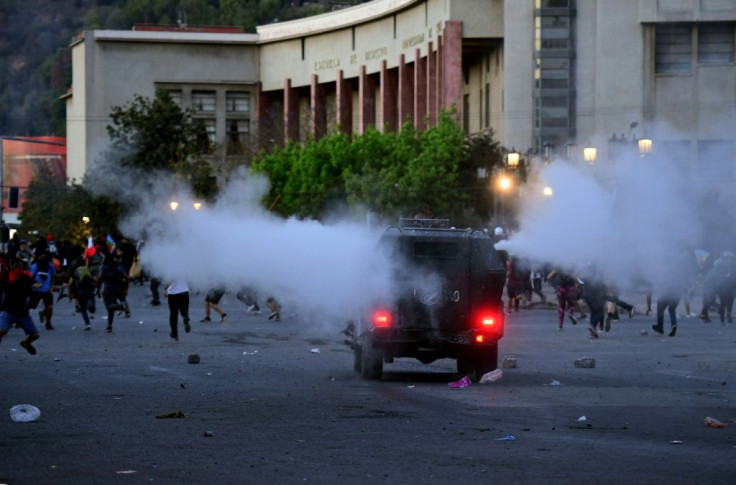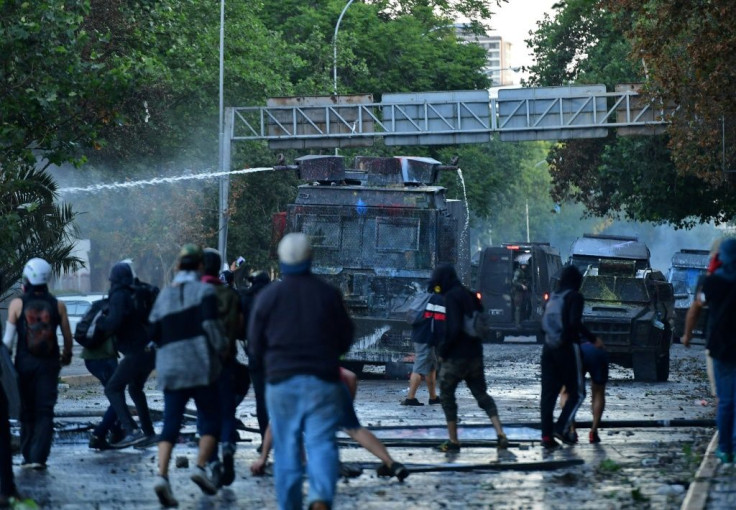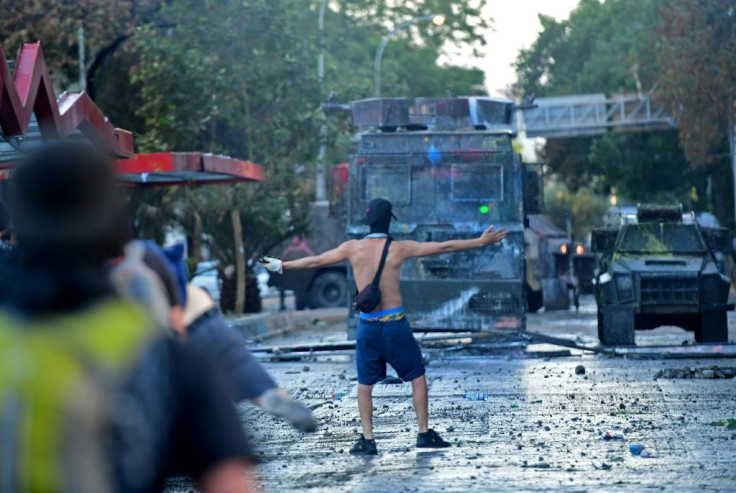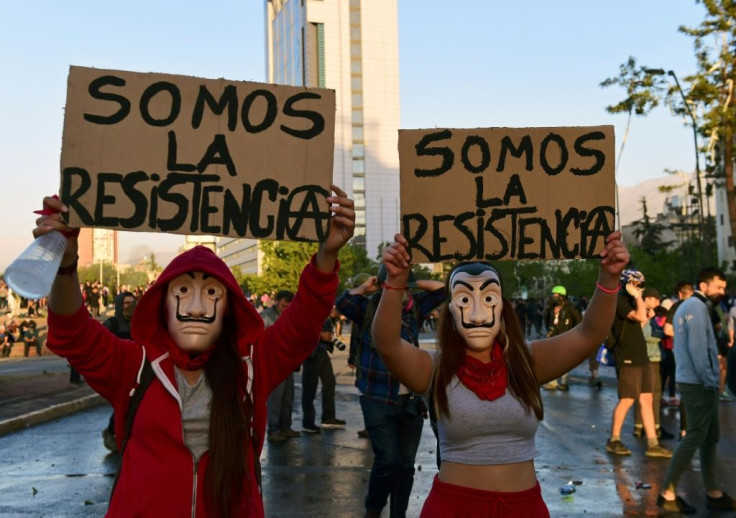Chile's Middle Class Takes To Streets Over Crushing Debt

It is not poverty that is driving Chile's middle class into the streets to join massive protests: it is debt, brought on by sky-high private health and education costs that have created an economic fragility many find unbearable.
That is why so many have taken part in two weeks of social upheaval, protesting against the economic policies of Chile's ruling elite.
Chile has an economic record that is the envy of Latin America: poverty has never been lower, dropping from 40 percent to less than 10 percent in 30 years, and transforming this country of 18 million into one where middle class citizens are the majority.
But for many, the ultra-liberal economic model inherited from the Augusto Pinochet dictatorship (1973-90) -- which privatized water, health, education and pensions -- has generated a "permanent worry" about unexpected expenses.
Nicolas Achondo, 33, was forced to close his restaurant.
After paying bills, wages and taxes, he had nothing left for private health insurance.
A motorbike accident left him owing thousands of dollars for treatment.

"I couldn't pay, they put me on the debtors list. That closes all doors to you: you can no longer get a bank loan or rent an apartment," he said.
"I no longer had access to credit and my business started generating debts. It's very unfair."
Thanks to help from his family, he managed to pay off his debts but has no capital to relaunch his restaurant business. He now wants to emigrate to Canada.

"We don't get state subsidies. The only thing we can do is access bank loans to pay for housing, health, education, clothing," said Achondo.
His parents suffered the same fate. They owned a video store in the 1980s-90s but fell victim to evolving technology.
They managed to pay for their two eldest children's private education without needing loans, but could not afford the same for their younger two children, both of whom are in the vastly inferior public school system.
'With or without uterus'
Marisol Berrios, a social worker, took out loans to pay for her two children's higher education.

"Now they're both university professors but they have insecure contracts. They receive the minimum wage and have no health care."
In a model with minimal state intervention, profitability is king.
As is often is the case, women are the hardest hit. They have to pay up to three times as much as men for health insurance when they want children.
"There are 'with uterus' contracts and 'without uterus' contracts that are cheaper. You pay a higher percentage when you're fertile," said Berrios.
Women also pay more in old age, says the 59-year-old, who admits to fearing retirement.
"I will retire in one year and my pension will be 170,000 pesos ($230)," said Berrios, who currently earns 1.2 million pesos ($1,620) a month.
"I went into depression about it this summer."
Health, education and pensions may be the biggest worries but on top of that are increases in electricity costs, a proliferation of motorway tolls around Santiago and an unregulated medication market.
For fed-up Chileans, it's this accumulation of expenses that weighs so heavily.
It was against this backdrop that a seemingly innocuous 3.75 percent hike in the price of a metro ticket lit a fuse under decades of pent-up frustration.
In a bid to douse the flames of discontent, conservative President Sebastian Pinera announced a raft of social measures: suspending a 9.2 percent hike in electricity bills and an annual 3.5 percent increase in toll charges.
But that didn't calm the public.
"Chile has awoken," has become one of the main slogans of anti-government protesters since October 18.
"We've woken up to the brutality of the system," said Berrios.
© Copyright AFP {{Year}}. All rights reserved.





















